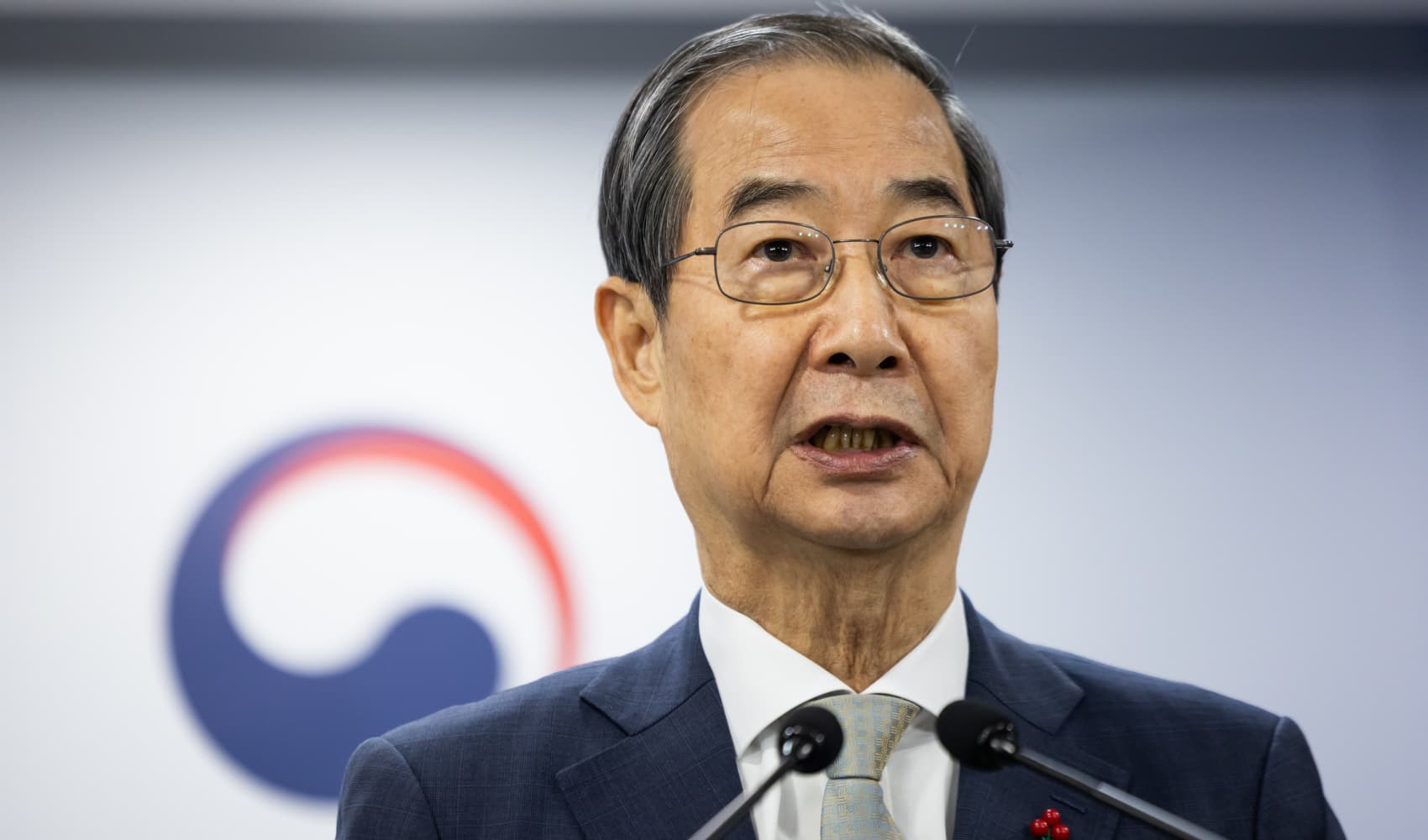
When French President Emmanuel Macron leaned in to give Premier Giuseppe Conte the Italian double-cheek kiss not once, but on two separate occasions, during a Franco-Italian summit in Naples this week, it was much more than a greeting.
It was a signal to citizens not to fear their neighbors as a new virus from China spreads, with Italy established as Europe’s hotspot.
Watch NBC6 free wherever you are
>Friendly kissing in the time of coronavirus has become a fresh dilemma, especially in effusive southern Europe, with perhaps the power to reshape customs. But even more-reserved northerners are grappling with whether to forgo the hallowed handshake.
The government’s special commissioner for coronavirus, Angelo Borrelli, has suggested that Italians' demonstrative nature could be contributing to the virus’ spread, with more than 1,100 people testing positive and 29 deaths, almost all in the country’s north.
Get local news you need to know to start your day with NBC 6's News Headlines newsletter.
>But there have been no official edicts on the social custom of kissing, which sociologists say is rooted in Italy's Mediterranean culture as well as its strong family and social structure.
“We have a collective social life that is very florid, very expansive. We have lots of contact, we shake hands, we kiss each other, we hug each other,” Borelli told reporters. “Maybe it is better in this period not to shake hands, and do not have too much contact, and try to be a bit less expansive, which is different from how I am.”
In neighboring France, Health Minister Olivier Veran on Saturday advised people to cut back on “la bise,” the custom in France and elsewhere in Europe of giving greetings with kisses, or air kisses, on the cheeks, along with shaking hands. France, which has had 100 cases and two deaths so far, made a similar recommendation during the swine flu epidemic a decade ago.
U.S. & World
In Spain, a country rooted with a strong tradition of cheek-kissing in social as well as many professional exchanges, is so far continuing the practice unabated. Spain has registered 71 coronavirus infections.
In Germany, where children are taught to shake hands with adults and the firmness of the grip can be seen as correlating to personality strength, health experts and doctors are trying to persuade people to quit traditional etiquette.
At Virchow hospital in Berlin, doctors not only stopped shaking hands with their patients — even non-contagious ones — but are actively encouraging them to follow the example as cases in Germany hit 66.
Health experts have been warning that shaking hands is a prime way to spread the disease.
In northern Italy, the virus is taking a deep social toll, curtailing the usual opportunities to meet.
With schools, museums and most public offices officially closed until Monday, many people are staying at home and avoiding all social contact. Italy’s financial capital, Milan, is as empty as in the peak summer holiday period, with many companies giving professionals the option to work from home, and some restaurants and neighborhood shops closed because of a lack of business. Ones that remain open are unseasonably empty.
During Milan Fashion Week, cheek kissing was dropped as the week went on and cases spiraled in favor of other acknowledgments, like a little double kiss to fingertips that one fashionista dubbed, ‘’the new coronavirus kiss.’’
Eleonora Strozzi, marketing manager in a business, WOVO store, specializing in sexy lingerie and erotic accessories that aims to challenge social taboos, said that the virus is teaching Italians boundaries.
“Italians want to be cool with each other, exchange kisses and shake hands. Now they are learning if you are not OK, or if you have doubts, they can create some distance,” Strozzi said. “Italians will learn something about consent from this experience.”
Marco Pozzi, a film director, met a business contact in a central Milan coffee bar on Friday, unconcerned about the risks of social contact, and was following the same precautions he follows every flu season, including frequent hand-washing. He was critical instead of what he saw as “alarmism” surrounding the virus.
Another meeting involving Pozzi recently in a city office had to be moved to a bar at 5:30 p.m. when emergency measures closed the office, but the bar, in turn, closed half an hour later because of the same restrictions.
“We ended up finishing the meeting on the sidewalk, talking for an hour in the cold. It was crazy,” Pozzi said, adding that “the real Milan is not afraid.”
Giampaolo Nuvolati, an urban sociologist at the University of Milan-Bicocca, said Italians’ habit of kissing is an expression of trust that is unlikely to be shaken by the virus. But he said something else more fundamental might change.
“Once this is past, we will understand that we cannot confront problems alone, that we need others beyond the family and close group of friends,” Nuvolati said. “There is the community, there are institutions. Maybe it will create a broader solidarity, not just restricted to friends and family.”
Sylvie Corbet and John Leicester in Paris, Aritz Parra in Madrid, and Kirsten Grieshaber in Berlin, contributed to this report.



